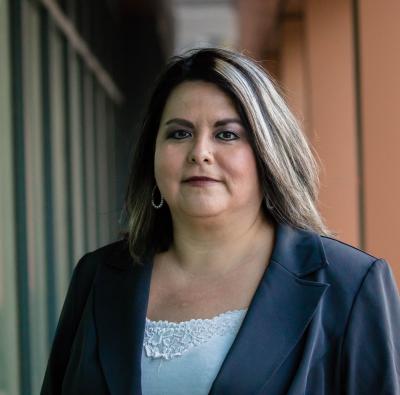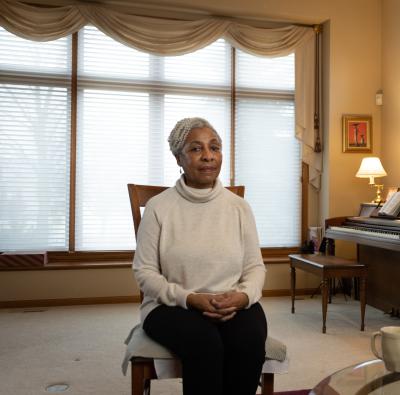While the legality of the new regulations adopted by Georgia’s State Election Board is yet to be determined, one thing is clear: Georgia officials are required by law to certify the election results, regardless of who the winner is.
The state board faced scrutiny over recently passed rules that allow county election boards to conduct a "reasonable...
Surprise! The U.S. Supreme Court issued an eleventh-hour ruling on Arizona’s election practices and it has already created confusion for voters and election officials alike.
On the bright side, the Supreme Court’s ruling means over 40,000 already-registered Arizona voters can vote in all federal elections — including for president and by mail...
Campaign Legal Center (CLC) has filed a complaint with the Senate Ethics Committee alleging that six candidates running for U.S. Senate have not filed the required personal financial disclosure reports.
These disclosures provide voters with crucial information about their prospective elected representatives’ personal financial interests and...
In an important development for congressional ethics, Representatives Katie Porter of California and Chris Pappas of New Hampshire have introduced the Clean Legislating and Ethical Accountability Now (CLEAN) Act, H.R. 9355.
This bill strengthens independent ethics enforcement in the House of Representatives by making the Office of Congressional...
For the first time since early 2020, when CLC revealed that members of Congress made over 1,500 controversial stock trades at the onset of the COVID-19 pandemic, a bill prohibiting congressional stock trading is moving forward.
During a July 24 business meeting, the U.S. Senate Committee on Homeland Security and Governmental Relations voted 8-4 to...
Voters have a right to know who is contributing to the campaigns, political parties, and other political committees that seek to influence their vote.
Knowing who political donors are is crucial for voters to meaningfully cast their ballot because it allows them to gauge whose policy interests candidates will likely serve once in office and to...
Election officials are the everyday Americans who administer our elections, keeping our democracy safe and secure. They undergo extensive training to make sure the necessary rules and laws are followed as they impartially conduct elections.
Election officials regularly test voting machines and election equipment, often in view of the public, to...
Campaign Legal Center (CLC) is representing two Alabama voters with past felony convictions in a lawsuit challenging a new law that could deprive many Alabamians of their freedom to vote in the 2024 election.
The bill, H.B. 100, states that it will go into effect on October 1, 2024, just over a month before the election. The law effectively adds...
Over a year after beginning its investigation into allegations that Supreme Court Justice Clarence Thomas violated financial disclosure laws, the financial disclosure committee of the Judicial Conference of the United States revealed on July 15 that it has again delayed making a final decision on the matter.
Fifteen months ago, CLC wrote a letter...
On July 8, the U.S. Court of Appeals for the District of Columbia Circuit ruled that the Federal Election Commission (FEC) needs to take action in response to a Campaign Legal Center (CLC) complaint filed against the Clinton presidential campaign and Correct the Record — a super PAC — for illegally coordinating their activities during the 2016...
Voters should be the ones to choose their leaders, not the other way around. While that idea may seem obvious, there are many states — including Ohio — where the people in charge of drawing voting maps are the politicians who stand to benefit most from manipulating those maps.
When politicians manipulate how voting maps are drawn to benefit...
With numerous recent ethics scandals in the House, Senate and Supreme Court making headlines, rules and oversight to hold elected officials and civil servants accountable for ethical violations are as important as ever.
Yet in Congress, there is a deepening ethics enforcement gap between the House and the Senate that coincides with a particularly...
The basis of American democracy is that we pick our leaders. The most important outcome of any election is not who wins or loses, but that votes are counted accurately, and the candidate chosen by the voters is elected.
Voters take the first step by doing their job and turning out to vote, and hardworking election officials put in long hours to...
Campaign Legal Center welcomes eight new members to our team for the summer: our 2024 class of summer legal interns. The summer interns are current law students who will work with CLC's full time staff to help advance our work in the areas of voting rights, redistricting, campaign finance, and ethics.
Welcome, team!
Meet the Interns
Daniel Brophy...
Voters should choose their politicians, not the other way around. Redistricting commissions — when done right — are a crucial, voter-centric reform designed to make the redistricting process transparent and impartial.
In 2021, 22 states utilized redistricting commissions to draw state legislative or congressional maps, directly impacting political...
The U.S. Constitution and federal Voting Rights Act guarantee that every vote counts equally, and that every voter has an equal voice.
Unfortunately, politicians sometimes shirk these laws by manipulating election systems to get their preferred outcome.
Certain electoral systems, including at-large systems, can silence communities of color and...
As other blogs in this series have shown, the Senate Ethics Committee, the lone body in charge of investigating ethics complaints against U.S. Senators, clearly does not enforce ethics laws.
The Ethics Committee’s system of self-policing has resulted in findings of no wrongdoing in 97% of all investigated ethics complaints and failure to produce a...
(This article is Part 2 of a three-part series examining the failed effort to enforce ethics in the U.S. Senate. See Part 1 here and Part 3 here.)
The Office of Congressional Ethics (OCE) serves a vital role in democracy by providing independent, nonpartisan oversight that safeguards the U.S. House of Representatives against corruption and holds...
The U.S. Senate Ethics Committee is responsible for guarding the integrity of the Senate and upholding the public’s right to know that their elected officials are being held accountable for unethical and unlawful behavior.
The list of misdeeds the committee is tasked with investigating includes acts such as insider trading, accepting illegal gifts...
When donors give candidates money to support their candidacy, candidates have a legal obligation to use those funds only for campaign-related purposes or, if they’re already in office, to support their duties as an elected official. Under federal law, campaign contributions may not be used to pay for personal expenses.
Moreover, candidates’...
The Judicial Conference is one of the only bodies that can enforce ethics laws against Supreme Court justices. That is why CLC wrote a letter to the Judicial Conference asking them to release the summary of their most recent meeting held nearly three months ago.
This Report of the Proceedings for the meeting should contain information about its...

